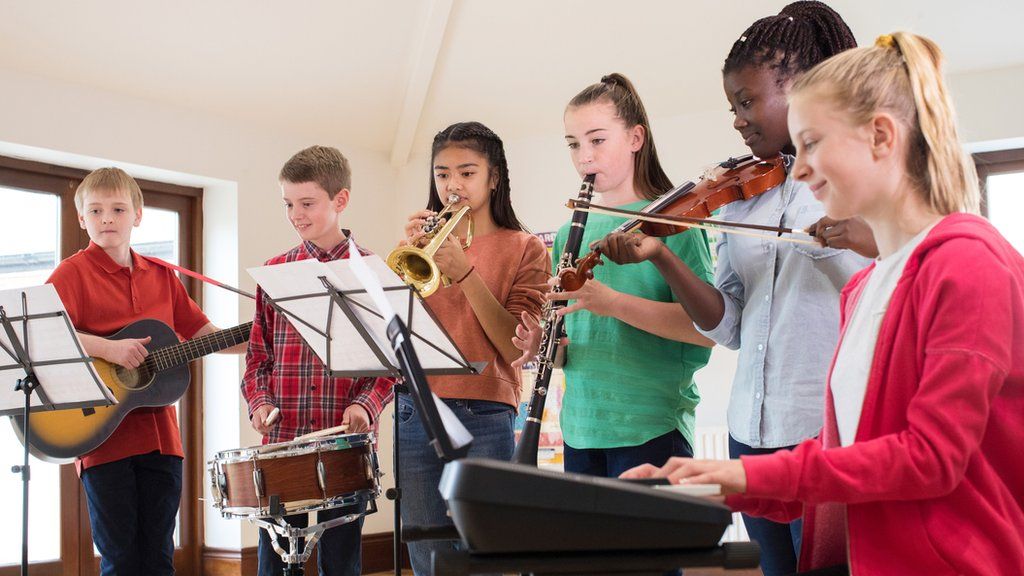The Soundtrack to Success: Music's Impact on Academic Achievement
Sara Navabi
03-07-2023
Sara Navabi
03-07-2023Music, beyond being a delightful art form, holds a profound impact on various aspects of human development. According to the UK’s Department for Education, it has been proven that music plays a key role in brain development, nurturing language, motor skills, emotional intelligence, and collaboration skills. Moreover, the benefits of learning music extend far beyond the realm of melodies and harmonies – they actually enhance learning in other subjects too.

Research has shown that incorporating music into education has a positive impact on cognitive abilities. Learning to play an instrument, for example, requires dedication, concentration, and perseverance. These skills transfer to other subjects, fostering a disciplined and focused approach to learning. As students engage in the complexities of rhythm, melody, and composition, they develop a sense of pattern recognition, which in turn supports mathematical reasoning and problem-solving skills.
Furthermore, music has a unique ability to stimulate memory and enhance recall. The structure and repetition found in musical compositions help students strengthen their memory retention which allows information to be memorised more effectively. Whether it's remembering historical dates, scientific formulas, or foreign vocabulary, the rhythmic patterns and melodic sequences of music provide a mnemonic framework for improved memory retrieval. This is why toddlers are taught the alphabet to the tune of “Twinkle Twinkle Little Star”.
Language development also benefits significantly from music education. The rhythmic patterns and lyrical elements of music align closely with the patterns of speech, aiding in pronunciation and verbal expression. Have you ever stopped to think, why can my child remember every lyric of that Harry Styles song, but can’t recall that poem by William Wordsworth? Studies have shown that children exposed to music at a young age tend to have stronger linguistic skills, including vocabulary, grammar, and overall verbal fluency.

Moreover, music education fosters emotional intelligence and self-expression. Through the performance of music, students learn to express themselves creatively, exploring different emotions and perspectives. This ability to connect with and understand emotions extends beyond the realm of music, enhancing empathy, social skills and confidence. As students engage in collaborative musical activities, such as ensemble performances or group improvisation, they develop teamwork, cooperation, and leadership skills, crucial for success in various aspects of life.
So, whether it's strumming a guitar, playing the piano, or participating in a school choir, embracing music as an integral part of education yields numerous benefits. As we continue to explore the fascinating connections between music and learning, let us celebrate and prioritise the harmonious partnership of music and education for the holistic development of students.
If you are interested in the transformative power of music, you can find out more about our partner Key Sounds UK who are transforming the personal development journey of students all over the country.
Popular Reads













